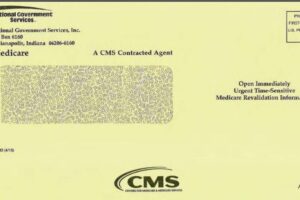The most frequently asked question we get from new providers joining an existing practice, or providers who are starting a private practice is “When can we schedule patients?” Unfortunately, the answer is not black and white. There are many variables that go into determining an effective date. Is the provider brand new to the insurance carrier or has he been credentialed before? If so, was it in the same state? Just because Dr. Smith was in-network with United HealthCare in California will not mean that his credentialing in New Jersey will be backdated to the effective date he requests.
“But what about Medicare? They always backdate, right?” Medicare will honor an effective date that you request, as long as it’s within 30 days of the application receipt date. (Keep in mind that you cannot request an effective date greater than 30 days in the future, either, as the application will be rejected.) If there are any developments for corrections or additional information that are not responded to in the allotted timeframe, the application will be rejected and a new application must be submitted. This decreases your chances of getting the effective date you originally requested. Using a credentialing company who will stay on top of these developments will allow the application to process smoothly, assuring the practice that once the PTAN (Provider Transaction Number) is assigned, the claims for services rendered during the application process will be paid.
Many state Medicaid plans will backdate to your original requested effective date, but not all. Commercial plans, on the other hand, are normally governed by committee meetings and contract executions. If your practice has a group contract with a commercial carrier, the effective date may simply be the date the physician gets linked to the group contract in the carrier’s system. If the provider must be individually contracted, you may be at the mercy of the work load of the contracting team, which could take anywhere from 30 days to 180 days – or more!
The unpredictability of effective dates can make setting up a brand new practice or adding a new physician to an existing practice very stressful. It may be wise, for the sake of ‘good business’, to consider initial non-par write-offs as a business expense for a growing practice. You may be paid nothing, or you may be paid out-of-network rates, but you’ll keep the patients coming through the door while the credentialing and contracting process is wrapping up. Make sure to refer to your credentialing reports for the status of each payer!





